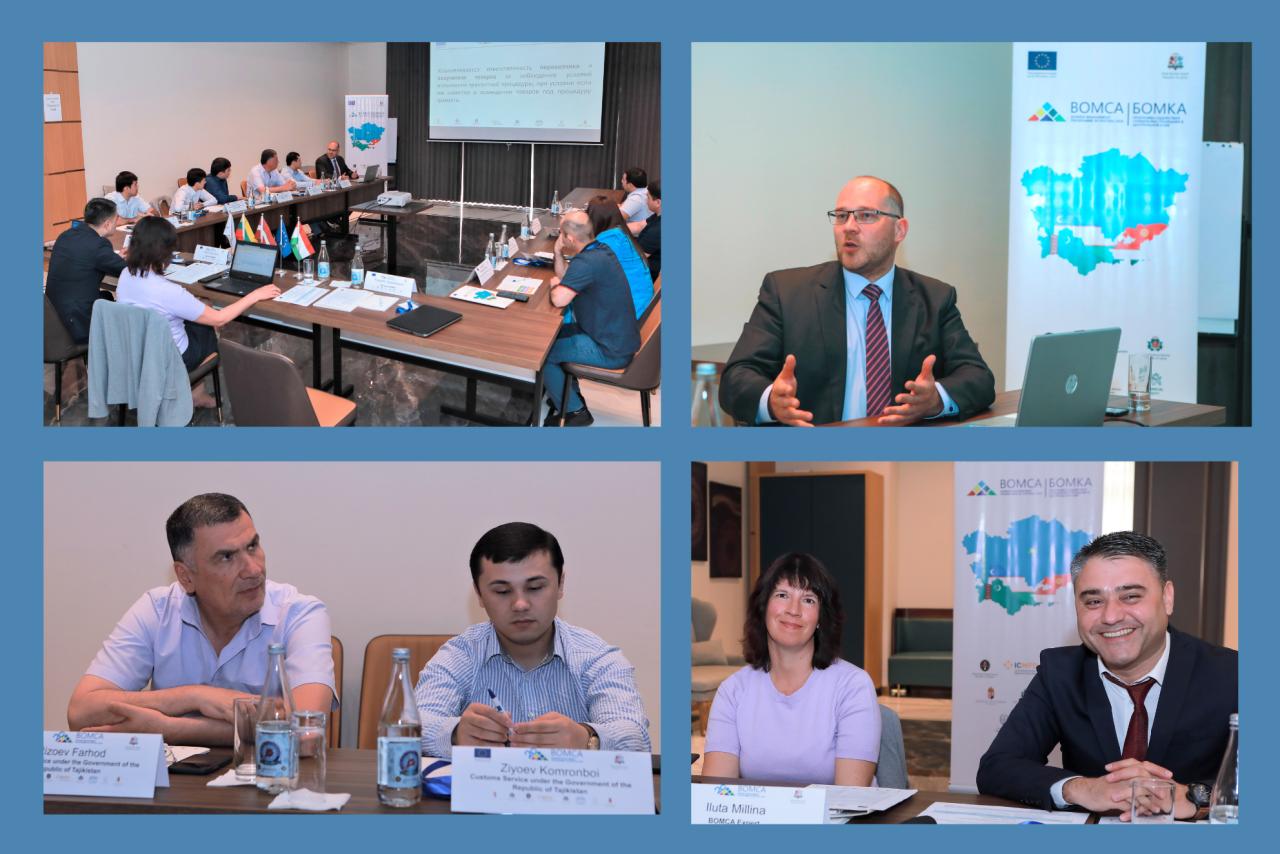From May 17-19, the EU-funded Border Management Programme in Central Asia (BOMCA 10) held a workshop in Dushanbe for Tajikistan Customs Administration on different transit systems, their requirements and application.
The activity improved customs transit efficiency through the introduction of relevant international legal instruments and good practices in this area.
Experts from the State Revenue Service of Latvia provided support to increase capacity of the national counterpart in addressing challenges in the application of different transit regimes and increasing their efficiency of a transit regime through, among other things, the automation of transit. The workshop concentrated on a detailed overview of the commonalities and differences of practices between the European Union and Eurasian Economic Union. The participants also looked into EU good practices and elements that could add specific value to the national customs processes.
As a result of the workshop, a model manual on the harmonisation of legislation and recommendations for improving national applications, transit data exchange and cooperation among customs administrations in the application of transit regimes were developed
To enhance cooperation between Central Asian countries in the field of international movements of goods, rapid border crossing, smooth customs controls etc., an essential measure is the introduction of electronic exchange of information between customs authorities. To ensure digitalisation and automation of customs processes, the harmonisation of national legislative acts is the key step.

